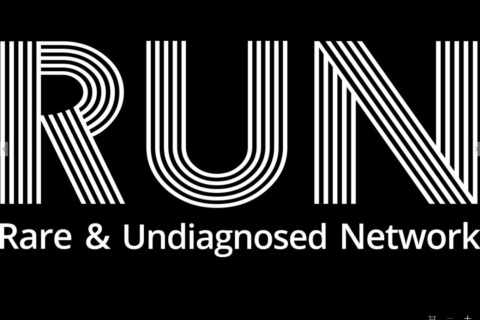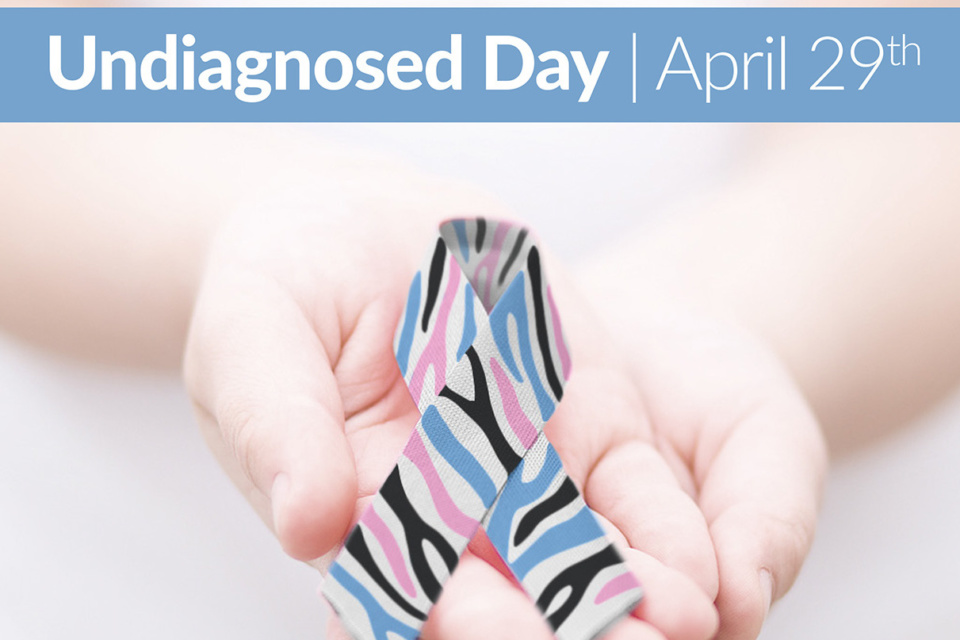Today is Undiagnosed Rare Disease Day #UndiagnosedDay
All diseases were once undiagnosed.
What is an undiagnosed condition?
A child has an “undiagnosed condition” when a physician is unable to find a diagnosis for certain characteristics or symptoms. – NIH National Human Genome Research Institute
An adult has an “undiagnosed condition” when a physician is unable to find a diagnosis for certain characteristics or symptoms. – NIH National Human Genome Research Institute
This is RUN’s sixth Undiagnosed Rare Disease Day! We started the awareness campaign in 2016. It has grown over the years to be a national and international campaign! #UndiagnosedDay!
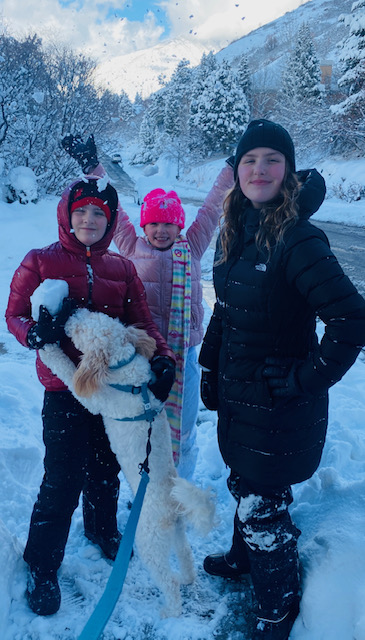
All three children are living with an undiagnosed rare disease.
What does “undiagnosed” mean?
“An undiagnosed disease is a medical condition without a known cause despite a lot of evaluation.” – Undiagnosed Disease Network UDN
What is Undiagnosed Rare Disease Day?
Undiagnosed Rare Disease Day is celebrated on several different days around the world but every day is undiagnosed for the families living in the world of the unknown. RUN celebrates Undiagnosed Rare Disease Day on April 29th. The main objective of Undiagnosed Rare Disease Day is to raise awareness for the undiagnosed rare disease community among the general public and decision-makers about undiagnosed rare diseases and their emotional, physical and financial impact on the lives of the patients and their families.
The campaign targets primarily the general public and also seeks to raise awareness among policy makers, public authorities, industry representatives, researchers, health professionals and anyone who has a genuine interest in undiagnosed rare diseases and the world of genetics. Since 80% of rare and undiagnosed rare diseases have identified genetic origins, it is imperative to raise awareness for the importance of genetics in the diagnostic odyssey of undiagnosed rare disease patients.
Help us raise awareness for the undiagnosed rare disease community by supporting Undiagnosed Rare Disease Day on April 29, 2021. #UndiagnosedDay
What is the theme for Undiagnosed Rare Disease Day?
The theme for 2021 is perseverance. How have you persevered with your undiagnosed rare disease?
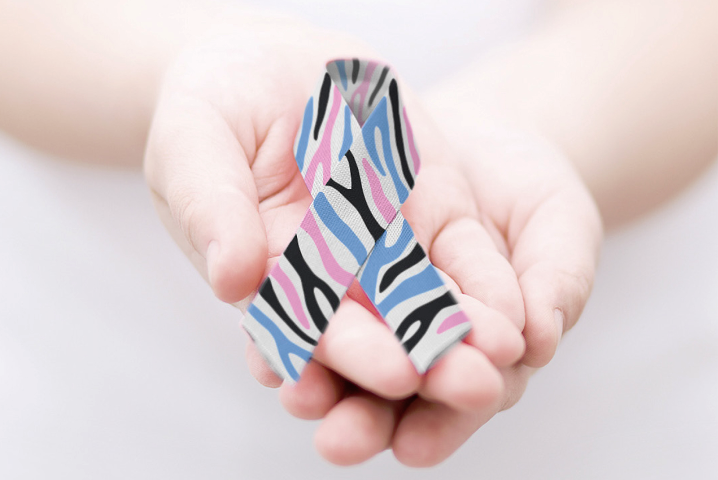
We created the undiagnosed ribbon from Ava Szajnuk’s drawing with the help of Erica Braymen in 2016. Since zebras represent the rare community, we envisioned having a zebra ribbon with blue and pink colors added to it to represent baby boys and baby girls.
Please feel free to share our Undiagnosed Rare Day Disease ribbon and RUN’s #UndiagnosedDay video!
Please use #UndiagnosedDay in all of your social media!
Thank you to everyone that shared about Undiagnosed Rare Disease Day!
Collaboration, Collaboration! Collaboration!
Do you have an Undiagnosed Rare Disease Statistic?
In the United States, 30-40% of children with disabilities have an undiagnosed condition. – SWAN UK (Syndromes Without A Name)
Rare diseases are characterized by a common denominator that is the infrequency of their occurrence in the human population. According to European Union criteria, rare diseases affect 5 per 10,000 persons in the EU population; in USA, rare diseases are defined as conditions that affect fewer than 200,000 individuals in the overall USA population, i.e. 320 million people.Although the frequency of separate entities often seem negligible, in the EU rare diseases affect about 30 million people and an estimated 25 million to 30 million Americans. Currently from 6000 to 8000 rare disorders are defined and many of them are waiting to be named in the future. Patient populations for individual rare diseases are small and scattered; international collaborations and networks are crucial to pool resources fragmented across individual countries for a better diagnosis and treatment. Undiagnosed rare diseases are conditions that elude diagnosis by a referring physician; some patients wait years for a definitive diagnosis. Undiagnosed rare diseases may include groups of unnamed disorders with common characteristics, phenotypically well described diseases, diseases with an unknown molecular basis or due to unknown, non-genetic factors. – Undiagnosed Disease Network International (UDNI)
In November 2017, Dr. Ryan Taft from Illumina spoke at the last Rare Disease Congressional Caucus briefing and we found his statistics fascinating:
He explained that in the United States alone, there are an estimated 6 million patients with a genetic disease that are not diagnosed. This is a huge population and a huge burden on our health system. He called it a public health crisis.
He also said that 14% of patient visits are for undiagnosed genetic dysfunction but they are 46% of the cost for insurance companies. He explained that this brings the cost to the insurance company to an estimated 57 billion dollars per year!
34 – 71% of admissions are genetic disorders and 31 % of babies in the NICU have a genetic dysfunction.
If you or your organization have an undiagnosed rare disease statistic, please email them to ginaszajnuk@gmail.com. RUN is working on compiling as many statistics as we can for our community
Do you have an undiagnosed rare disease or do you know someone that does? Please share!
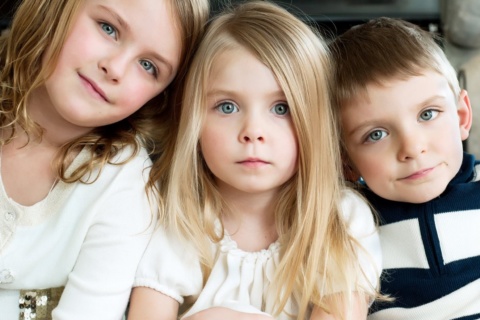
Ava, Lucy & Oskar Szajnuk in 2015
Photo by Season Atwater, AwareofAngels.org
We encourage you to explore our Rare and Undiagnosed Network (RUN) website to learn more about many families living in a diagnostic odyssey and the world of the unknown. Please read some of the incredible stories of inspirational men, woman and children living with an undiagnosed rare disease.
Ava Szajnuk Undiagnosed
Hailey Sampsel Undiagnosed Migraines
Rachel Nielsen Undiagnosed/Eosinophilic Esophagitis/Colitis
Calen Forsythe Undiagnosed
Michael Lee Undiagnosed
Lashay Undiagnosed
Michael George Undiagnosed
Oskar Szajnuk Undiagnosed
Lucy Szajnuk Undiagnosed
Stockton Perry Undiagnosed, Stockton passed away on July 20, 2020
Cohen Bramlee Undiagnosed
Talan Summers Undiagnosed
Each one of these families has an incredible story to share about their faith, their pain and their perseverance.

RUN’s dream has always been to have an Undiagnosed Alliance. Our dream was answered by the Undiagnosed Disease Network International (UDNI).
To Read: UDNI’s General Description and Background Information.
They will be celebrating SWAN UK’s Undiagnosed Children’s Day on April 30th.
All Undiagnosed Rare Disease patients should apply to the Undiagnosed Disease Network. The Undiagnosed Diseases Network (UDN) is a research study backed by the National Institutes of Health Common Fund that seeks to provide answers for patients and families affected by these mysterious conditions. Apply to the UDN
Undiagnosed Rare Disease Resources:
Angel’s Hands Foundation: Our mission is to improve the quality of life for individuals living with rare and undiagnosed medical conditions.
Aware of Angels: Aware Of Angels advocates for children who have genetic, rare or undiagnosed disorders. An accurate and conclusive diagnosis for these children will not only give direction for proper treatments and improve their quality of life, but in some cases it may save their life. By sharing their stories and images, we are advocates for families to the medical and research fields, as well as connect families in similar situations. These children desperately need treatments, cures and answers. Rare/Undiagnosed diseases collectively affect millions of children. They often are serious, debilitating and life altering; many are life threatening or fatal. This is why they need your help.
CURE (Complex Undiagnosed Rare and Extraordinary): The CURE brings together a community of extraordinary parents of children with undiagnosed, rare and complex medical conditions, to learn, share and support each other amidst their long journey.
EURORDIS Rare Diseases Europe: Undiagnosed rare diseases
Genetic Alliance: Genetic Alliance engages individuals, families and communities to transform health. This requires that we as an organization understand what it means to transform systems, dissolve boundaries, create and sustain open space, and promote the process of openness. We understand that to transform systems, we must start with our own, beginning with our very person. Such work calls us, both personally and professionally, to explore the deepest truths about ourselves and the systems we impact.
Genetic and Rare Disease Network: Undiagnosed Disease Resources
Global Genes: Becoming an Empowered Patient: A Toolkit for the Undiagnosed
MyGene2: MyGene2 is a portal through which families with rare genetic conditions who are interested in sharing their health and genetic information can connect with other families, clinicians, and researchers. The genetic cause of most rare conditions is unknown and as a result, most families who undergo exome sequencing or whole genome sequencing do not receive a diagnosis. By sharing information through MyGene2, a family can help and even participate in the discovery of new genetic conditions and the genes underlying these conditions.
National Organization for Rare Diseases (NORD): Patient and Caregiver Resource Center for Undiagnosed Rare Diseases
National Organization for Rare Diseases (NORD): Undiagnosed Rare Disease Registry
NIH National Center for Advancing Translation Science/GARD Genetic and Rare Disease Information Center: Tips for the Undiagnosed
Rare Connect: Hosted by trusted patient advocates, RareConnect is a place where rare disease patients can connect with others globally. RareConnect is a safe environment where privacy is respected and where trusted information is shared via real patient representatives.
Rare Genomic Institute: RG is an international non-profit founded in 2011 to provide access to cutting edge genomic research, technologies, physicians, and scientists across the globe. By providing an expert network, RG helps families pursue personalized research projects for diseases not otherwise studied.
SWAN UK: SWAN UK (syndromes without a name) is the only dedicated support network for families of children and young adults with undiagnosed genetic conditions. SWAN UK is run by the charity Genetic Alliance UK.
SWAN US: SWAN US (syndromes without a name)We are a nonprofit tax exempt 501c3 organization that advocates for children and young adults who have syndromes without a name. We offer support, advice and information on the challenges that families face when there is no diagnosis. We also advocate for changes in the medical community that will benefit undiagnosed individuals.
U.R. Our Hope: To serve individuals with undiagnosed and rare disorders at any age and any stage.
The Wilhelm Foundation: The Wilhelm Foundation is a 501 (c)(3) non-profit organization dedicated to help children and youth with undiagnosed Brian Disease. Our primary goal is a global congress; we feel that more must be done to help these children. This is where the global congress enters the picture. The Wilhelm Foundation wants to organize a congress with the world’s leading scientists.
We would love to add to our undiagnosed rare disease community resources. Please contact RUN and we will add it to our list!
“Our undiagnosed rare disease community continues on a path of emotional, physical and financial ruin. Many undiagnosed rare disease patients live their entire lives without a diagnosis or with a misdiagnosis. We need to eliminate the diagnostic odyssey, which causes physical, emotional and financial ruin for these families, by making next generation sequencing available to families immediately.
Since 80% of rare diseases have identified genetic origins, it is imperative to raise awareness for the importance of genetics in the diagnostic odyssey of undiagnosed rare disease patients. The importance of national and international data sharing is critical to improve diagnosis for these patients. We need to have collaboration and global cooperation.
We need to push hard on insurance companies to cover genetic sequencing in a clinical setting and have every single child sequenced in the United States. Sharing the data will allow for more information to be learned and for more of the undiagnosed rare disease patients to get answers. We can then and only then truly start on the next chapter of our journey – finding a treatment and a cure. As of now, being undiagnosed is our diagnosis and we need to be recognized as a distinct population.” – Gina Szajnuk “Undiagnosed” Persists as an Ominous Diagnosis for Rare Disease Patients
This is a very personal campaign for our Szajnuk family. We have worked with nine institutions in six different states on our diagnostic odyssey. We are praying for a diagnosis, a treatment and a cure in our lifetime. Please help us raise awareness for the undiagnosed rare disease community. – Gina Szajnuk Living With an Undiagnosed Rare Disease
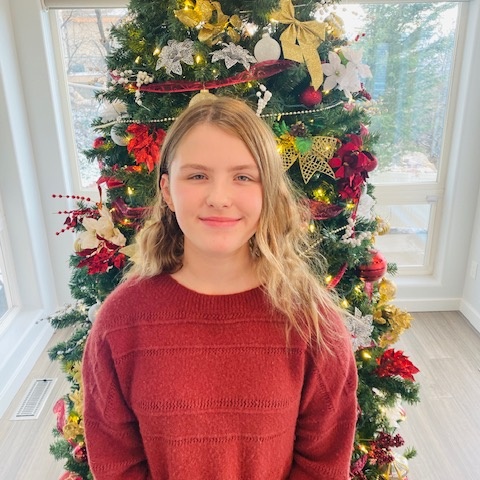
“All rare diseases were once undiagnosed. Many children and adults are born and thought to be healthy. In one day, their lives changed in an instant. Rare and undiagnosed rare diseases will touch your life at some point. It could be your mom, your dad, your friend or your child. Help us to do all that we can in our power to let us save their lives. I would just like to say that some people ask, “Why do you hurt?” I say, “If we knew that, I would already be cured.” Imagine it, like every normal person was a brilliant blue sky, and I, am a raging hurricane Harvey. Thank you.” – Ava Szajnuk
Learn more about RUN via Podcasts and Articles:
To Read: “Push Through” by Ava Szajnuk
RARE Cast by Global Genes: “A Young Rare Disease Advocate Discusses Life with an Undiagnosed Condition”
RUN’s Mission: RUN stands for the Rare & Undiagnosed Network. We’re a group of advocates, patients, families, researchers, and healthcare providers who share the same mission and vision: To empower rare and undiagnosed patients and their families with genomic information and community through advocacy, networking and support.
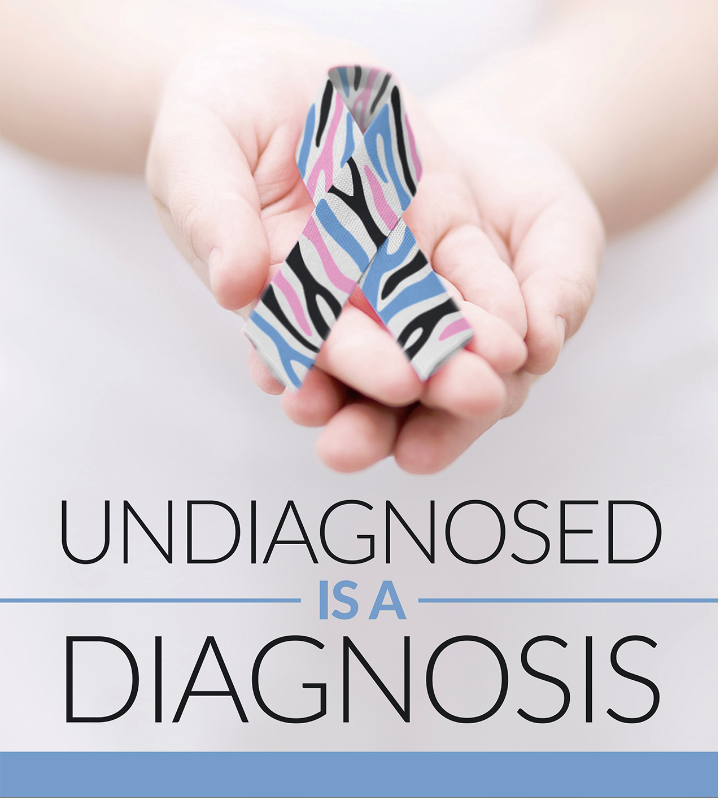
In 2021, we dedicate Undiagnosed Rare Disease Day to Bertrand Might and Stockton Perry.
A special thank you to Small Forces Productions for donating our Undiagnosed Rare Disease Day video.
Thank you for your continued support of our family and the entire undiagnosed rare disease community!
Much Love,
Gina, Ava, Oskar & Lucy
Contact information: Gina Szajnuk (Zanik)
Co-founder and Executive Director
E: ginaszajnuk@gmail.com
C: (310) 883-4353
To Read: “What is the hardest part of being undiagnosed?” by Gina Szajnuk
To Read: “Undiagnosed is a Diagnosis” by Ava and Gina Szajnuk
To Read: The Szajnuk Journey
